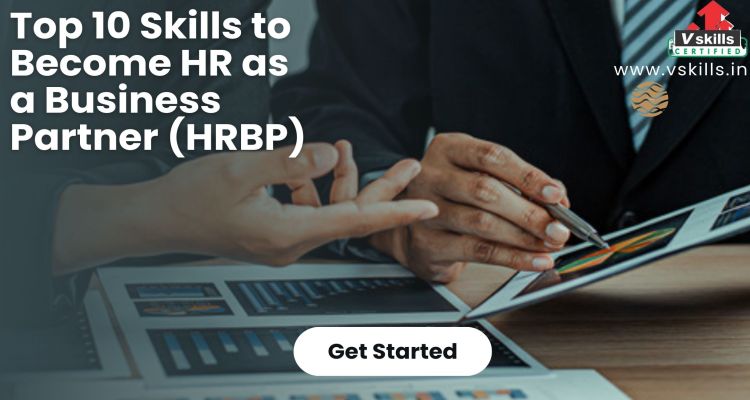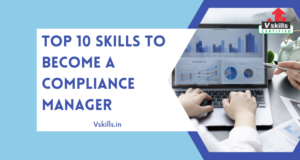In today’s business environment, HR is no longer seen as just a support function, but as a strategic partner contributing to the organization’s overall success. As an HR business partner (HRBP), you must have a diverse skill set that enables you to collaborate with business leaders effectively, understand their needs, and align HR practices to support the organization’s goals. In this blog, we will discuss the top 10 skills that are essential for becoming an effective HRBP. Whether you are just starting in HR or looking to develop your career as an HRBP, this blog will provide valuable insights on the skills you need to succeed in this role. So, let’s dive in and explore the top skills that you need to become an HRBP.
Skill 1 – Business Acumen
Here are some further details on the key components of business acumen:
- Financial Literacy: Understanding financial statements, such as balance sheets, income statements, and cash flow statements, and using financial metrics to analyze the organization’s performance.
- Industry Knowledge: Understanding the industry in which the organization operates, including market trends, competition, and regulations that affect the business.
- Customer Focus: Understanding the needs and expectations of the customers and aligning business strategies to meet those needs.
- Strategic Planning: Developing and implementing strategies that align with the overall business objectives and achieve long-term success.
- Operational Efficiency: Understanding the organization’s operational processes and identifying areas where efficiency can be improved to reduce costs and improve productivity.
- Risk Management: Identifying and managing potential risks that could impact the organization, including financial, legal, and reputational risks.
- Innovation: Encouraging and promoting innovation to drive growth and stay ahead of the competition.
- Sales and Marketing: Understanding the sales and marketing process and using that knowledge to develop effective marketing strategies and increase revenue.
- Collaboration: Working collaboratively with other departments and stakeholders to achieve business goals and drive success.
- Entrepreneurial Mindset: Thinking creatively, taking calculated risks, and being adaptable to change to create new opportunities for the organization.
Skill 2 – Strategic Thinking
Strategic thinking is a critical skill for HRBPs to anticipate future challenges and opportunities. Here are key components of strategic thinking for an HRBP:
- Long-Term Vision: Developing a clear and compelling vision for the HR function that aligns with the organization’s overall strategic objectives.
- Analyzing Trends: Keeping abreast of industry trends, emerging technologies, and workforce dynamics to make informed decisions and adapt HR practices accordingly.
- Scenario Planning: Creating alternative scenarios to anticipate potential challenges and devise proactive solutions for various business situations.
- Alignment with Business Goals: Ensuring that HR strategies and initiatives are fully aligned with the organization’s long-term goals and contribute to its growth.
Skill 3 – Data Analysis for HRBP
Data analysis is becoming increasingly vital for HRBPs to make data-driven decisions. Here are key components of data analysis for an HRBP:
- Data Collection: Gathering relevant HR data from various sources, such as employee surveys, performance metrics, and workforce demographics.
- Data Interpretation: Analyzing and interpreting the collected data to identify trends, patterns, and insights that inform HR strategies.
- Metrics and KPIs: Establishing key performance indicators (KPIs) to measure the effectiveness of HR initiatives and track progress towards organizational goals.
- Data-Driven Recommendations: Presenting data-backed recommendations to business leaders to facilitate strategic decision-making.
Skill 4 – Change Management
As HRBPs play a crucial role in driving organizational change, they must be adept at change management principles and practices. Here are key components of change management for an HRBP:
- Change Readiness Assessment: Evaluating the organization’s readiness for change and identifying potential challenges that may arise during the process.
- Communication Planning: Developing comprehensive communication strategies to ensure transparency and engage employees in the change process.
- Change Implementation: Facilitating change initiatives, providing necessary resources, and supporting employees to embrace the change.
Skill 5 – Communication Skills
Effective communication is paramount for HRBPs to engage with stakeholders and convey complex information clearly. Here are key components of communication skills for an HR business partner:
- Active Listening: Actively listening to employees’ concerns and feedback to understand their needs and perspectives.
- Influential Communication: Delivering persuasive and compelling messages to gain buy-in and support for HR initiatives.
- Clear and Concise Messaging: Articulating HR policies, procedures, and organizational changes in a manner that is easy for employees to comprehend.
Skill 6 – Relationship Building
Building strong relationships is crucial for HRBPs to collaborate effectively with various stakeholders. Here are key components of relationship building for an HRBP:
- Stakeholder Engagement: Cultivating positive relationships with business leaders, employees, unions, and external partners to foster collaboration.
- Empathy and Trust: Demonstrating empathy and building trust to create an inclusive and supportive work environment.
- Conflict Resolution: Effectively addressing conflicts and disputes that may arise within the organization, promoting harmonious working relationships.
Skill 7 – Leadership and Influence
HRBPs need strong leadership skills to influence organizational decisions and drive change. Here are key components of leadership and influence for an HRBP:
- Strategic Leadership: Demonstrating visionary leadership that aligns HR strategies with the organization’s overall goals.
- Influencing Skills: Using persuasion and negotiation to gain support for HR initiatives from top management and other stakeholders.
Skill 8 – Talent Management
Talent management is central to an HRBP’s role in ensuring the organization has the right people in the right roles. Here are key components of talent management for an HRBP:
- Talent Acquisition: Developing effective recruitment strategies to attract top talent and aligning hiring decisions with the organization’s needs.
- Employee Development: Implementing training and development programs that foster employees’ growth and career progression.
Skill 9 – Project Management
HR business partners often oversee multiple projects, making project management skills vital for success. Here are key components of project management for an HRBP:
- Project Planning: Creating comprehensive project plans with clear objectives, timelines, and resource allocation.
- Execution and Monitoring: Overseeing project implementation, monitoring progress, and making adjustments as needed.
Skill 10 – Continuous Learning and Development
Finally, HRBPs should have a commitment to ongoing learning and development to stay abreast of industry trends and best practices. Here are key components of continuous learning and development for an HRBP:
- Professional Development: Pursuing certifications, attending workshops, and participating in industry conferences to enhance HR expertise.
- Knowledge Sharing: Encouraging a culture of learning within the HR team and the organization as a whole by sharing knowledge and best practices.
By cultivating these essential skills, HR business partners can elevate their role to a strategic partner and drive organizational success through effective people management and HR practices.
Develop these skills with Vskills certification on HRBP.



